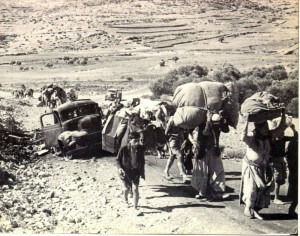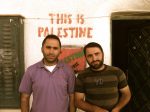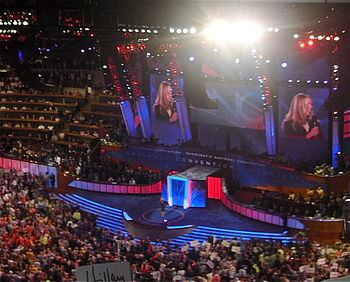50 years of failed strategy is nothing to commemorate
June 5, 2017 marks the 50th anniversary of Israel’s premeditated attack against loudmouthed Arab neighbors in a war that had never really ended from 1948. Rather than using strategic thinking and creative actions to defeat Israel or force Israel to accept the legitimacy of Palestinian Nationalism and Statehood, Arabs and especially Palestinian activists have responded with emotion, anger and failed strategies. Now, 50 years later, we’re still where we started. No forward movement for Palestine while Israel reinforces its stranglehold.
Published in the Arab News May 31, 2017
By Ray Hanania

The war, often called “The Six-Day War” because it only took Israel six days to destroy the myth of “Arab nationalism,” should symbolize something more important for today’s new generation of Arabs. The war, which destroyed Palestinian national aspirations and the myth of Arab empowerment, should be a reminder that Arabs need to change.
The concept of change has focused on Israel withdrawing from occupied lands, but that is misguided, and has been the weak foundation of Arab strategy toward Israel. The focus should not be on what Israel did, but what Arabs failed to do.
I was only 13 when the war broke out. By then, my father’s family had been expelled at gunpoint by Israel’s terrorist occupation in 1948. They were forced to flee to Jordan, where they sat in a refugee camp until my father George and his older brother Moses could help bring them to Chicago.

In 1967, my mother’s family experienced the brutality of Israel’s military occupation, the human degradation it inflicted on Christians and Muslims, and the humiliation not of losing the war, but of being treated like animals by Israeli soldiers and later the terrorist settler movement. The Israelis were not the issue though. We were the issue. We festered in our suffering. The continued failure to achieve justice fueled our anger.
Our leaders fanned that anger into hatred. And hatred undermined any possibility of defeating Israel, forcing us to live as “victims” who would strike out in anger in meaningless acts of violence and resistance that often forced us to abandon our humanity and engage in terrorism against civilians, even little children. Israel exploited our suffering, anger and hate, and the more it did so, the more it excelled toward its goals.
In 1967 there were no settlements. Today there are more than 168; they are racist because they are built only for Jews, they exclude Christians and Muslims, and they are constructed on land taken from them. The population of this racist settlement movement is more than 450,000, including 200,000 living in settlements that hug East Jerusalem.
====================================
In 1967 there were no settlements. Today there are more than 168; they are racist because they are built only for Jews, they exclude Christians and Muslims, and they are constructed on land taken from them.
====================================
Israel is strategic in everything it does. It annexed East Jerusalem in 1980, 13 years after occupying it. It classified those in racist settlements such as Gilo as Israeli citizens, changing the label from occupied territories to “Israeli lands.” Israel is good at manipulating public perceptions, redefining terms and planning.
They have one philosophy: Take what you can get then slowly change it. Arabs have one philosophy too: Take all or nothing. Of course, we have nothing. We have rejected everything.
Jews started with small settlements in the late 19th century, expanded them to bigger cities in the 20th century then accepted half the state, as proposed by the UN in 1947. They knew the partition plan was ridiculous, but instead of rejecting it they embraced it, because they were confident that whatever they take they can grow. In accepting half the state, they fought and seized 50 percent more.
Palestinians can change and do the same thing as the Israelis. They can accept whatever land is abandoned by Israel, and have faith and confidence that in the long run they will expand and take over the rest. The Israelis know that. They recognize that if the Palestinians ever establish a state, it will grow and eventually absorb Israel. The sheer weight of Arab demographics in peace would suffocate Israeli nationalism.

But Palestinians have no faith in themselves. They only have their suffering, victimization and anger. Sadly, some Palestinians have found gratification in that suffering, building institutions that champion conflict and extremism rather than realistic solutions, and that feed emotions and clamor for all or nothing.
They want to turn the clock back to 1947 or even before, and have one democratic state where they say Christians, Muslims and Jews will be equal. But they cannot, so they create an industry for their suffering and commemorate their tragedy.
Palestinians must break free from this mental bondage and define a new future based on growth and confidence that we can achieve this. Otherwise we will pass along to the next generation of Palestinians and Arabs another commemoration of 75 years, then 100. By then, will Palestine exist anywhere outside our angry memories?
(Ray Hanania is an award-winning Palestinian-American former journalist and political columnist. Email him at rghanania@gmail.com.)


- Israelisnipers shooting and killing hospital workers in Gaza - December 11, 2023
- CAIR Condemns Israeli Executions of Wounded, Unarmed Palestinian in West Bank - December 11, 2023
- Arab and Muslim American voters face a “simple choice” between Biden’s inhumanity and Trump’s edgy politics - December 9, 2023























